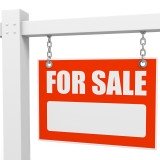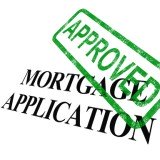Is It a Good Time to Buy Rental Property?
Before you buy rental property, it's necessary to eliminate any nagging doubts that you might have. Read on as we answer the most common (and important) questions by rental property investors.
Should I Buy Rental Property or Other Assets?
Rental property investments are more hands-on which can be a good or bad thing depending on what type of investor you are.
Owning rental property means becoming a landlord. And being a landlord means having to manage your tenant and property. And managing tenants and properties takes time and effort.
On the bright side, rental properties offer a slew of unique advantages such as tax deductions, leveraged investment (with mortgage loans) and less volatility. For more details, Click here to learn the benefits of rental property investing.
If you're looking forward to honing your skills as a landlord and meeting new people, then you may even enjoy being a rental property owner. Otherwise it's best to leave your rental property in the hands of a reliable property manager or turn to other investments.
Is It a Good Time to Buy Rental Property?
While there is no sure way to predict the next real estate boom or bust, there are 2 ideal periods for entering the rental property market: Near the end of a bear market where prices have hit rock bottom and at the beginning of a bull market when prices are beginning to recover.
It's best to treat your rental property as a long term investment that generates passive income. Successful landlords see themselves as owners of rental businesses, not traders of fixed asset. You also pay less capital gains tax on rental property if you have owned it for at least a year before selling.
Since most experts have acknowledged that it's impossible to time the real estate market in the short term, we should strongly suggest that you avoid property flipping and speculation (unless you have an enormous risk appetite).
If you leap in at the peak of a property boom and prices start sliding afterwards, you will be paying for that mistake for a long time.
How Do I Know Which Rental Property is Better?
Rental yield is most popular indicator for comparing returns across different rental properties. In a nut shell, it's the ratio of annual rent of a rental property vs its total property cost. Properties with higher rental yields are better because they allow you can recover your investment capital sooner.
For a more accurate estimate, it's important to calculate net rental yield instead of the more popular (and simplistic) gross rental yield - Click for more details on how to calculate rental yields.
Calculating a rental property's net cash flow is one of the most reliable methods for judging its profitability. It's highly recommended to buy rental property that has a positive cash flow, meaning that its rental income exceeds its rental expenses.
What are the Steps for Buying a Rental Property?
Buying a rental property is a big decision but the process doesn't have to painful. The entire process can be broken down into 7 steps:
- Define your investment budget and long term goals
- Choose the location and neighborhood of your property
- Decide on which type of property that you want to invest in
- Decide if you're going to become a resident landlord
- Look for the best mortgage deal and get yourself pre-approved
- Hire a home Inspector or contractor to inspect the property
- Make the seller an offer and negotiate for the best price
For more details on the different steps, Click here for our guide on how to buy rental property.


